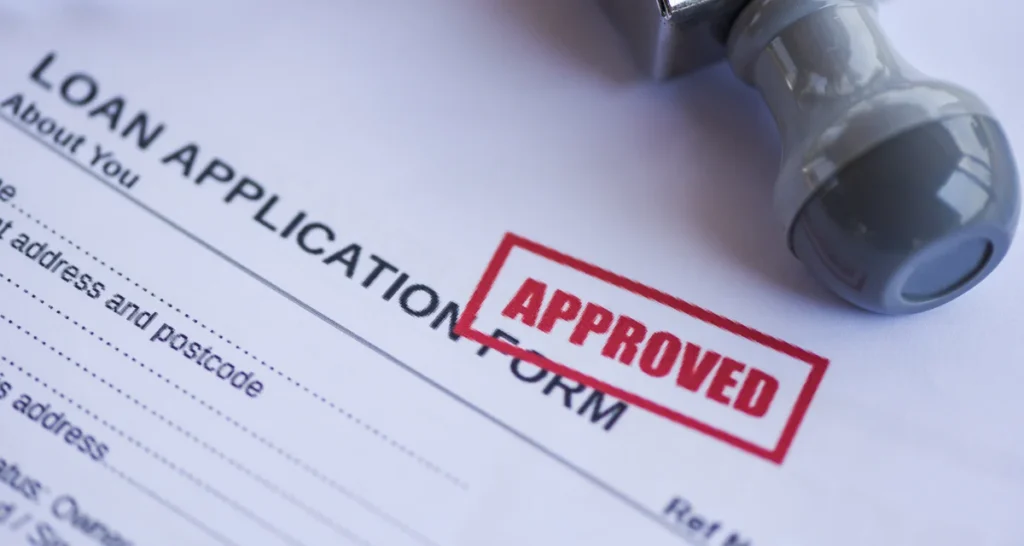Introduction
When getting car loans in Japan, different financing options vary widely in terms of interest rates, repayment terms, and approval requirements, and making the right choice can help you save on total costs, ease monthly budget constraints, and avoid financial stress. Whether you’re a Japanese citizen or a foreign resident, understanding these options empowers you to make the best decision for your situation, ensuring that car ownership remains a benefit rather than a burden.
What Are the Best Car Loans In Japan?
Financing a car purchase in Japan, several options are available, each catering to different financial needs and circumstances. Here’s a closer look at some of the best car loans in Japan, including bank auto loans, dealership financing, in-house financing, and special options for foreign residents.
Bank Auto Loans
Bank car loans in Japan are a popular choice among car buyers in Japan due to their competitive interest rates and structured repayment terms. Major Japanese banks, such as MUFG, Mizuho, and SMBC, offer auto loans tailored for new and used vehicles. Here are some key features:
- Lower Interest Rates: Banks typically offer lower interest rates than other financing options, making bank auto loans a cost-effective choice over the life of the loan.
- Flexible Loan Terms: Repayment terms generally range from 1 to 7 years, allowing borrowers to select a repayment period that suits their budget.
- Eligibility Requirements: Bank auto loans usually require a stable income, good credit history, and permanent residency or long-term employment for foreign residents. Applicants will need to provide documentation, such as proof of income and a Zairyu card.
Bank car loans in Japan are ideal for those who meet the eligibility criteria and are looking to secure the lowest interest rates possible. However, the approval process can be rigorous, making this option more suitable for buyers with a steady financial background.
Make car ownership in Japan simple. Contact us to get started with a recommended, English-friendly dealer today!

Dealership Car Loans in Japan
Dealership financing is another convenient option, as it is offered directly through the car dealership. Dealerships often partner with financial institutions to provide loan packages, streamlining the application process and enabling buyers to secure financing on the spot.
- Interest Rates and Promotions: Dealership financing rates can vary widely and may sometimes be higher than bank loan rates. However, many dealerships offer seasonal promotions with reduced rates or incentives, such as 0% financing for a limited period.
- Convenience and Speed: With dealership financing, buyers can handle both the financing and purchase process in one place. This streamlined approach can save time, especially if the buyer doesn’t want to go through a bank’s rigorous approval process.
- Flexible Down Payment Options: Dealerships may offer flexibility with down payments, allowing buyers to adjust based on their budget.
We recommend this option to buyers who value convenience and are open to securing financing as part of the car purchase experience.
In-House Financing
Some car dealerships in Japan offer in-house financing, providing car loans in Japan directly to buyers without involving a third-party lender. In-house financing can be an ideal option for buyers with unique financial situations or those who might not qualify for a traditional loan.
- Flexible Approval Process: In-house financing tends to be more flexible in terms of approval criteria. Dealers may be more lenient on credit history or income requirements, making this an attractive option for buyers with limited financial records.
- Tailored Loan Terms: Since the dealership handles the financing directly, terms can be more personalized. For example, the loan amount, interest rate, and repayment schedule might be negotiable based on the buyer’s circumstances.
- Higher Interest Rates: One downside of in-house financing is that interest rates are often higher than those offered by banks or third-party lenders. Buyers should carefully review the terms to avoid higher long-term costs.
In-house financing is a good option for those who might face challenges qualifying for other loans.
Comparison of Car Loans in Japan Types
| Car Loan Type | Interest Rate Range | Eligibility Requirements | Pros | Cons | Approval Speed |
| Bank Loans | Lower rates (around 1-4%) | Stable income, good credit history, permanent or long-term residency | Lowest interest rates, structured terms | Rigorous approval process | Moderate to slow |
| Dealership Loans | Varies (may be higher than banks) | Flexible, often requires less stringent criteria | Convenient, can handle financing at purchase point | Higher interest, terms may be less favorable | Fast |
| In-House Loans | Typically higher rates | Flexible, may overlook credit history | Easier approval, tailored terms | Higher long-term costs | Fast |
Best Car Financing Options for Foreign Residents in Japan
Foreign residents in Japan often face unique challenges when securing car financing. Many traditional lenders require permanent residency or a long history of employment in Japan, which can be a barrier for non-Japanese nationals. Fortunately, there are financing options tailored specifically for foreign residents.
- Special Car Loans in Japan Programs for Foreign Residents: Some banks and dealerships offer loans specifically designed for foreigners, with flexible eligibility criteria that account for factors like visa status and employment stability. For instance, Shinsei Bank and Suruga Bank offer auto loans with options for non-Japanese applicants.
- Impact of Visa Status on Loan Approval: A resident’s visa type and length of stay can influence approval chances. Applicants with long-term or permanent residency are more likely to qualify for traditional bank loans, while those on short-term or work visas might find in-house financing or specialized programs more accessible.
- Documents and Guarantors: Foreign residents may need additional documentation, such as a residence card, proof of employment, and possibly a guarantor, depending on the lender’s requirements.
Such financing options provide foreign residents with viable pathways to car ownership in Japan, but it’s important to review all terms carefully. Special programs can help make car financing more accessible, allowing foreigners to benefit from loan structures similar to those offered to Japanese citizens.
For a comprehensive look at buying cars in Japan as a foreign resident, read our Ultimate Guide to Buying Cars in Japan as a Foreigner.
What Are the Car Loan Approval Criteria and Required Documents?

To secure car loans in Japan, it’s essential to understand the criteria lenders use to evaluate applications and the documentation required for approval. Japanese lenders are generally thorough in their vetting process, assessing factors such as income stability and residency to ensure applicants can reliably meet their financial commitments.
Loan Approval Criteria: What Do Lenders Look For?
Lenders in Japan use a range of criteria to assess an applicant’s financial stability and reliability. Key factors include:
- Income Stability: Regular, steady income is a primary requirement for car loans in Japan approval. Lenders often prefer applicants with stable employment in established companies or industries. Self-employed individuals may face additional scrutiny and be asked to provide tax records or other evidence of financial stability.
- Job Status and Employment Length: Job status is another crucial factor. Full-time employees with long-term contracts or regular, salaried positions have higher approval chances. Those with shorter employment histories or contract-based work may need additional documentation to support their application.
- Length of Residence in Japan: For foreign residents, the length of stay in Japan can impact approval chances. Permanent residents and long-term visa holders (e.g., those with work visas lasting several years) are more likely to qualify than those on short-term or tourist visas.
- Credit History: Lenders may review an applicant’s credit history to gauge their financial reliability. For those who have lived in Japan for a while, establishing a local credit record (e.g., by using a Japanese credit card) can strengthen their profile.
- Debt-to-Income Ratio: Japanese lenders are cautious about over-lending. They will evaluate an applicant’s debt-to-income ratio to ensure that monthly car loan payments do not strain their finances, especially if the applicant has other outstanding debts.
Meeting these criteria improves the likelihood of loan approval. However, for those who may have a non-traditional employment background or limited credit history, certain loan types (like in-house financing) may offer more lenient terms.
What Documents Do You Need for Car Loans in Japan?
Applicants must submit specific documents as part of the loan application process. Required documents may vary by lender, but generally include:
- Residence Card (Zairyu Card): Foreign residents need to provide their residence card, which shows proof of legal residency, visa type, and length of stay in Japan.
- Proof of Income: Salary slips, tax returns, or employment certificates are typically required to verify income. Some lenders may also accept recent bank statements as supplementary proof.
- Japanese Driver’s License: A Japanese driver’s license is usually required when applying for car loans in Japan, as it verifies that the applicant is legally permitted to drive in Japan.
- Proof of Employment: Employment certificates from the applicant’s employer or a copy of the employment contract can demonstrate job stability and long-term employment plans in Japan.
- Guarantor Information (if applicable): Some lenders may ask for a guarantor (a Japanese national or permanent resident) if the applicant’s employment or visa status raises any concerns.
Having these documents ready can help streamline the application process and ensure that the lender has all necessary information to make an informed decision.
Tips for Foreign Applicants to Increase Approval Chances
Foreign residents can face additional challenges in securing car loans in Japan approval, especially if they have a short stay or non-permanent visa. Here are some tips that may improve the likelihood of approval:
- Obtain a Japanese Guarantor: Having a guarantor, preferably a Japanese citizen or permanent resident, can increase approval chances. A guarantor provides added security to the lender, showing that there is a backup in case of missed payments.
- Demonstrate Stable Employment: For foreign applicants, showing a stable job with a reputable company can be a significant advantage. This includes providing documentation like a long-term employment contract or a recommendation from the employer.
- Build a Japanese Credit History: If possible, foreign residents should aim to establish a Japanese credit history, perhaps by using a credit card or taking out smaller loans that they can easily repay. This helps demonstrate reliability and responsibility in managing debt.
- Show Strong Financial Background: In some cases, providing additional financial information, such as savings statements or tax records from one’s home country, can support the application by showing overall financial stability.
- Choose Lenders with Programs for Foreigners: Some banks and lenders offer loan programs specifically designed for foreign nationals, often with more lenient eligibility requirements. These lenders understand the unique situations foreign residents face and can provide more accessible financing options.
Foreign drivers in Japan face unique challenges; understanding Japanese traffic laws is crucial, especially if you’re new to driving here.
How Can You Compare Interest Rates and Plan Repayments?
When getting car loans in Japan, understanding interest rates and planning your repayment strategy are important steps. Car loans from banks and dealerships can vary significantly in terms of interest rates, loan terms, and repayment flexibility. Here’s a closer look at how to compare these options and plan your payments effectively.
Interest Rates: What’s the Difference Between Bank and Dealership Car Loans in Japan?
Interest rates can vary greatly depending on whether you obtain your loan from a bank or through dealership financing. Here’s how the two options typically differ:
Bank Loans: Bank auto loans usually offer lower interest rates compared to dealership loans. Banks often have fixed rates, meaning the interest rate remains constant throughout the loan period, providing predictability for budgeting. Fixed-rate bank loans are generally preferred for long-term stability and cost-effectiveness.
Dealership Financing: Dealerships may offer financing options that can be more convenient but often have higher interest rates. However, dealerships sometimes provide promotional rates (such as 0% interest for a limited term) or flexible down payment options, which can make dealership loans attractive if you qualify for such promotions. Some dealerships offer variable-rate loans, where the interest rate may fluctuate based on the market, which can either increase or reduce your payments over time.
Fixed vs. Variable Interest Rates
- Fixed Interest Rates: With a fixed-rate loan, your interest rate stays the same throughout the loan term, giving you consistent monthly payments. This stability can be beneficial for long-term planning and is often offered by banks.
- Variable Interest Rates: Variable-rate loans have interest rates that may fluctuate based on market conditions. If rates decrease, your payments might go down, but if they increase, you could end up paying more. Variable rates are less predictable and are generally better suited for shorter-term loans where the risk of fluctuation is lower.
Always consider your financial stability and whether you prioritize predictability or are comfortable with possible rate changes. Fixed rates provide peace of mind, while variable rates can offer potential savings if market conditions are favorable.
How to Create a Repayment Plan That Works for You?
Creating a repayment plan involves assessing your budget, loan term, and total cost over time. Here’s a guide to planning your repayments effectively:
- Determine Your Budget: First, calculate a realistic budget for your monthly car loan payments. This budget should include not only the loan payment but also additional costs like insurance, fuel, and maintenance.
- Choose Your Loan Term: Car loans in Japan typically range from 1 to 7 years. A longer term reduces monthly payments but increases the total interest paid over time. Conversely, a shorter term has higher monthly payments but lowers overall costs due to reduced interest.
- Sample Repayment Schedules: To illustrate, here’s an example:
- For a 2 million yen loan over five years at a 3% fixed interest rate, monthly payments would be approximately 35,970 yen. In contrast, a seven-year term would reduce monthly payments to around 27,012 yen, but the total interest paid would be higher.
- For the same loan at a variable rate that starts at 2.5%, monthly payments might begin lower, but borrowers should be prepared for potential rate increases that could raise payments over time.
Example Car Loans in Japan Repayment Schedules
| Loan Amount | Interest Rate | Loan Term | Monthly Payment | Total Interest Paid | Total Repayment Cost |
| ¥2,000,000 | 3% fixed | 5 years | ¥35,970 | ¥158,200 | ¥2,158,200 |
| ¥2,000,000 | 3% fixed | 7 years | ¥27,012 | ¥264,300 | ¥2,264,300 |
| ¥2,000,000 | 2.5% variable | 5 years | Varies | Potentially lower | Potentially lower or higher |
Early Repayment: What Are the Pros and Cons?
Early repayment can be an appealing option for borrowers who want to reduce their debt faster.
Pros of Early Repayment:
- Reduced Interest Costs: Paying off your loan early can save a substantial amount in interest, especially if your loan has a long term or high-interest rate.
- Financial Freedom: Clearing the loan ahead of schedule frees up monthly cash flow for other expenses or investments.
Cons of Early Repayment:
Potential Fees: Some lenders impose fees for early repayment to offset the interest income lost. These fees may vary depending on the lender and loan terms.
Opportunity Cost: If you have other high-interest debts (e.g., credit card debt), it might be more financially beneficial to prioritize paying those off first, as they typically carry higher interest rates than car loans.
Before choosing early repayment, consult with your lender to understand any fees and weigh them against the potential savings on interest. Early repayment is generally advantageous if the fees are low and your budget allows it, but always consider the overall impact on your finances.
Japanese Car Loan Calculator
What Are the Extra Costs After Buying a Car in Japan?

Beyond the initial purchase and financing costs, car ownership in Japan entails several ongoing expenses. One should understand these additional costs to budget effectively and avoid unexpected financial strain.
- Shaken (for a biennial inspection): ¥50,000 to ¥75,000 per year.
- CALI (Compulsory Insurance): ¥10,000 to ¥15,000 per year.
- Voluntary Insurance: ¥50,000 to ¥100,000 per year.
- Automobile Tax: ¥10,800 to ¥50,000 per year.
- Weight Tax: Varies based on vehicle, around ¥8,200 to ¥50,000 biennially, averaging around ¥20,000 per year.
- Parking Fees (if applicable): ¥120,000 to ¥360,000 annually in urban areas.
Parking Space Certification: Why Is It Required and How Do You Get It?
In Japan, car ownership requires proof of a designated parking space, a rule strictly enforced by Japanese authorities to prevent traffic congestion and parking issues, especially in urban areas. This proof, known as the “Shako Shomeisho” (車庫証明), or parking space certification, must be obtained before completing the car purchase and registration process.
- Why It’s Required: The parking space certification law requires that every car owner has access to a parking space within a certain distance from their residence or place of work. This rule is aimed at reducing illegal parking and ensuring that car owners have a secure place to park without impacting others.
- How to Obtain the Shako Shomeisho:
- First, secure a parking space. This could be at your residence (if it includes parking) or by renting a space in a nearby parking lot. Parking costs vary, especially in city centers, where monthly fees can be high.
- Submit a parking space certification application at your local police station. You’ll need to provide details of the parking space, proof of permission from the property owner, and a layout map showing the location.
- The police will then verify the space and issue the Shako Shomeisho, usually within a few days. This certification is essential for completing vehicle registration and obtaining license plates.
Our detailed guide on Car Parking in Japan covers how to find and secure space, a requirement for car registration.
Final Thoughts
Car loans in Japan involve a variety of options, each with different benefits and requirements. Whether you’re considering a bank loan, dealership financing, or in-house options, choosing the best financing solution depends on your financial situation, employment stability, and long-term plans in Japan. For foreign residents, additional factors like driver’s license requirements and parking certification play a critical role in the car-buying process. Understanding these elements is key to going about Japan’s legal landscape as a car owner. With the right financing strategy and awareness of local requirements, getting a car loan in Japan can offer freedom, convenience, and a fulfilling way to explore everything the country has to offer.





